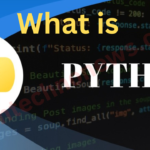Unveiling 5 Little-Known Windows Operating System Police Special Secrets
Amidst the domain of operating frameworks, Windows has wielded significant influence for epochs, tending to a manifold range of users globally. Though the majority are acquainted with its intuitive interface and expansive functionalities, there exist obscure attributes, especially within specialized editions crafted for particular objectives, like law enforcement. Within this discourse, we explore five clandestine revelations of Windows operating frameworks fashioned for police and law enforcement entities.
-
Forensic Capabilities:
Windows operating systems employed by law enforcement entities frequently integrate sophisticated forensic functionalities. These attributes empower investigators to efficiently extract invaluable data from digital devices. From retrieving erased files to scrutinizing system logs and user interactions, these utilities assume a pivotal role in crime resolution and evidence procurement.
-
Remote Access and Monitoring:
Another captivating facet of Windows systems tailored for law enforcement lies in their capability to remotely access and monitor suspect devices. Via secure channels, law enforcement agencies can obtain entry to designated computers or mobile gadgets, facilitating discreet observation of activities, data collection, and even covert command execution. This functionality proves instrumental in surveillance endeavors and the detection of illicit activities.
-
Encryption and Security Protocols:
In fact, law enforcement operations place a high value on security, and Windows systems designed for use by police include robust encryption and security protocols. These actions are intended to defend delicate information from unapproved access, subsequently saving the honesty of examinations and safeguarding private data from expected chances.
-
Customized User Interfaces:
To streamline workflows and enhance usability in high-pressure situations, police-special Windows operating systems often feature customized user interfaces. These interfaces are designed with input from law enforcement professionals, prioritizing essential tools and functionalities for quick access and intuitive navigation. Such tailored interfaces contribute to efficient decision-making and response times in critical scenarios.
-
Integration with Law Enforcement Databases:
The intricate web of connections holds paramount importance in contemporary law enforcement, and the Windows operating systems adopted by law enforcement entities adeptly fuse with diverse databases and information frameworks. Whether delving into criminal records, executing background inquiries, or juxtaposing data from myriad origins, these amalgamated solutions furnish investigators with extensive perspectives and tools to bolster their investigative endeavors.
In conclusion, despite the widespread acclaim for the adaptable and user-centric traits of Windows operating systems, the custom editions crafted for law enforcement entities conceal an array of obscure functionalities meticulously designed to address the distinct requisites of policing. Ranging from sophisticated forensic functionalities to remote surveillance and oversight mechanisms, these platforms equip investigators with the necessary arsenal to combat criminal activities and maintain integrity in the digital era. As the landscape of technology undergoes continuous evolution, it remains imperative to unveil these clandestine facets that wield substantial influence in contemporary law enforcement endeavors.












